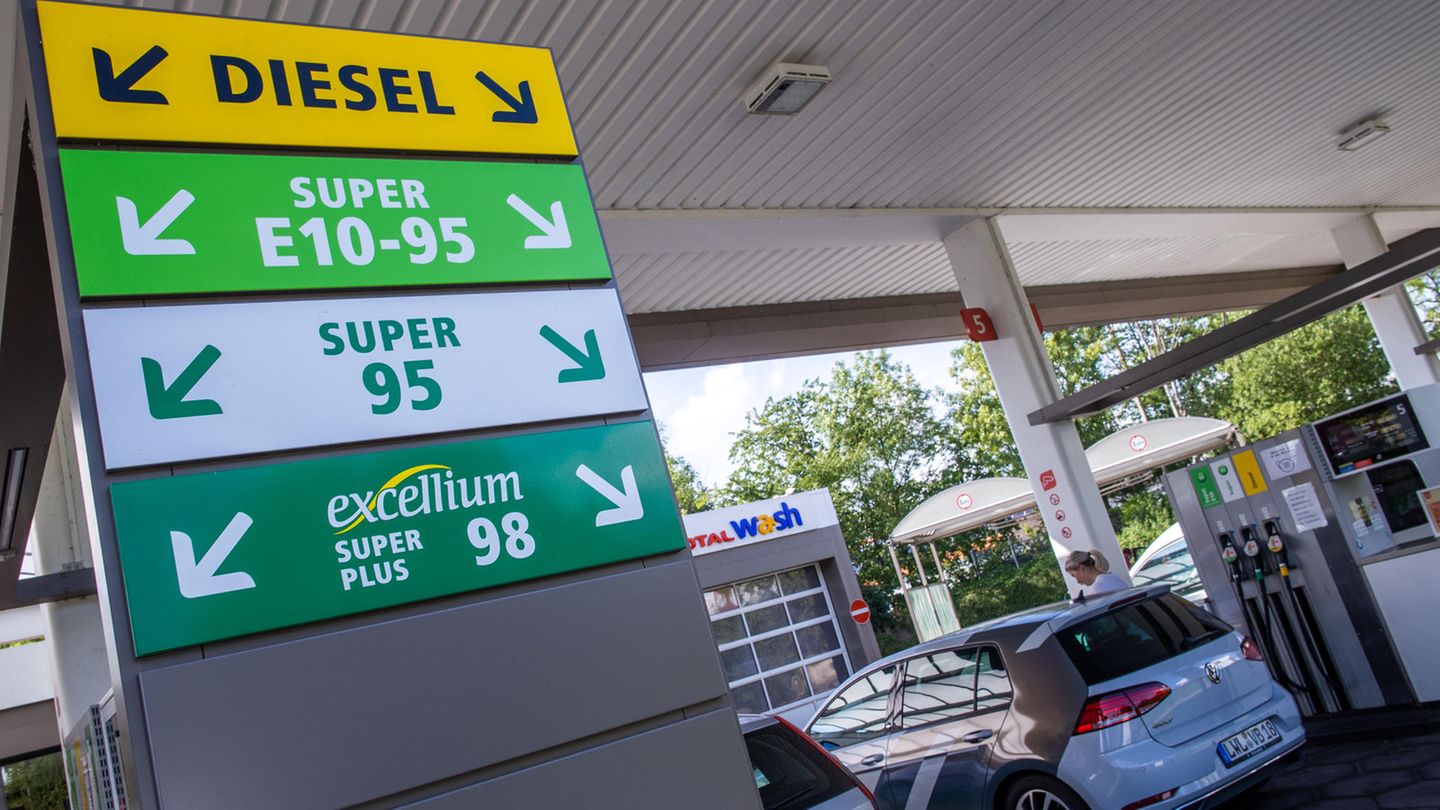Anyone who only suspected it until now has it officially: Prices are rising significantly in this country. For pretty much everything. Some experts warn: prices could go up even further.
Whether gasoline, heating oil, renting an apartment, groceries or a visit to the pub around the corner: Life in Germany has recently become significantly more expensive. That is now confirmed by official data released this Thursday.
According to the latest data from the Federal Statistical Office in Germany, inflation rose significantly in July and exceeded the three percent mark for the first time in 13 years – and very clearly. According to the current provisional calculation by the authority, consumer prices were 3.8 percent above the level of the same month last year.
This means that the annual inflation rate in Europe’s largest economy was above the three percent mark for the first time since August 2008. During the financial and economic crisis at the time, inflation had repeatedly exceeded three percent. According to media reports, it is even the highest monthly inflation rate since 1996, when the harmonized measurement started in Europe.
Inflation affects many areas of everyday life
Energy prices rose by 11.6 percent year-on-year in July. According to statistics, food became more expensive by 4.3 percent. The price of services, including apartment rent, rose 1.3 percent.
At the end of last year, prices were still falling. One of the reasons for this was the temporary reduction in VAT.
After the slight decline in inflation to 2.3 percent in May of the current year, the trend was reversed again. From June to July 2021, consumer prices increased by 0.9 percent according to calculations by the Wiesbaden authority.
Economists expect further price jumps in the coming months. One important reason is the return of VAT to its old rates: In the second half of 2020, the federal government temporarily lowered VAT to 16 or 5 percent in order to stimulate consumption in the corona crisis. Since January 1, 2021, the usual VAT rates of 19 and 7 percent have been in effect again in Germany. Goods and services are therefore tending to become expensive again.
In addition, energy prices have been rising at an above-average rate for months. A year ago, with the outbreak of the corona crisis, crude oil prices collapsed due to low demand on the world market. They have since recovered. And finally, since January 25 euros per tonne of carbon dioxide (CO2) has been due in Germany, which is produced when diesel, petrol, heating oil and natural gas are burned. The CO2 price is intended to help protect the climate.
According to a report in the “Frankfurter Allgemeine Zeitung”, there are also reasons that have to do with the subsiding of the corona crisis: The prices for travel have risen because more people want to go on vacation and the demand for vacation travel has increased. Many pubs and restaurants have also increased their prices when they were finally allowed to reopen after the lockdown.
The chief economist of the state development bank KfW, Fritzi Köhler-Geib, confirmed in an interview with the AFP news agency that prices have risen significantly in the areas that benefit particularly strongly from the openings after the lockdown. In addition, producer prices rose as sharply in June as they did last during the second oil crisis in 1982. That will “sooner or later make itself felt in consumers’ wallets”.
Whether the trend will continue in Germany is a matter of dispute among experts
Köhler-Geib emphasized that the higher producer prices are mainly due to increased energy and raw material prices in the course of the economic recovery. However, she expects that from next year onwards, inflation will again be slightly below the inflation target of 2.0 percent set by the European Central Bank. In addition to the other factors, the return to the original VAT rates is currently the main driver of the inflation trend. However, this will only be the case for a limited time.
The head of the Public Finance Research Department at the Leibniz Center for European Economic Research (ZEW), Friedrich Heinemann, on the other hand, warned of the “strongest surge in inflation in three decades” in the coming months. “Even if some of these effects are only temporary, the consequences and risks of the sharp rise in inflation should not be played down.”
Citizens are threatened with a “secret tax increase”
In particular, financial assets with low or no interest rates would be devalued by inflation, explained the financial expert. The winners are the state: With the current inflation rate and the low interest rates on government bonds, the federal government can reduce the real burden of its national debt. The taxpayers, however, are facing a “comprehensive secret tax hike” due to the inflationary surge due to the cold progression.
ING analyst Carsten Brzeski also expects the inflation rate to rise further: interrupted supply chains, higher raw material prices and delivery problems put pressure on producer prices and thus indirectly on consumer prices. “Together with the return to the old VAT rate, inflation could even exceed four percent towards the end of the year,” fears Brzeski.
Swell: dpa, AFP, “”
Jane Stock is a technology author, who has written for 24 Hours World. She writes about the latest in technology news and trends, and is always on the lookout for new and innovative ways to improve his audience’s experience.




